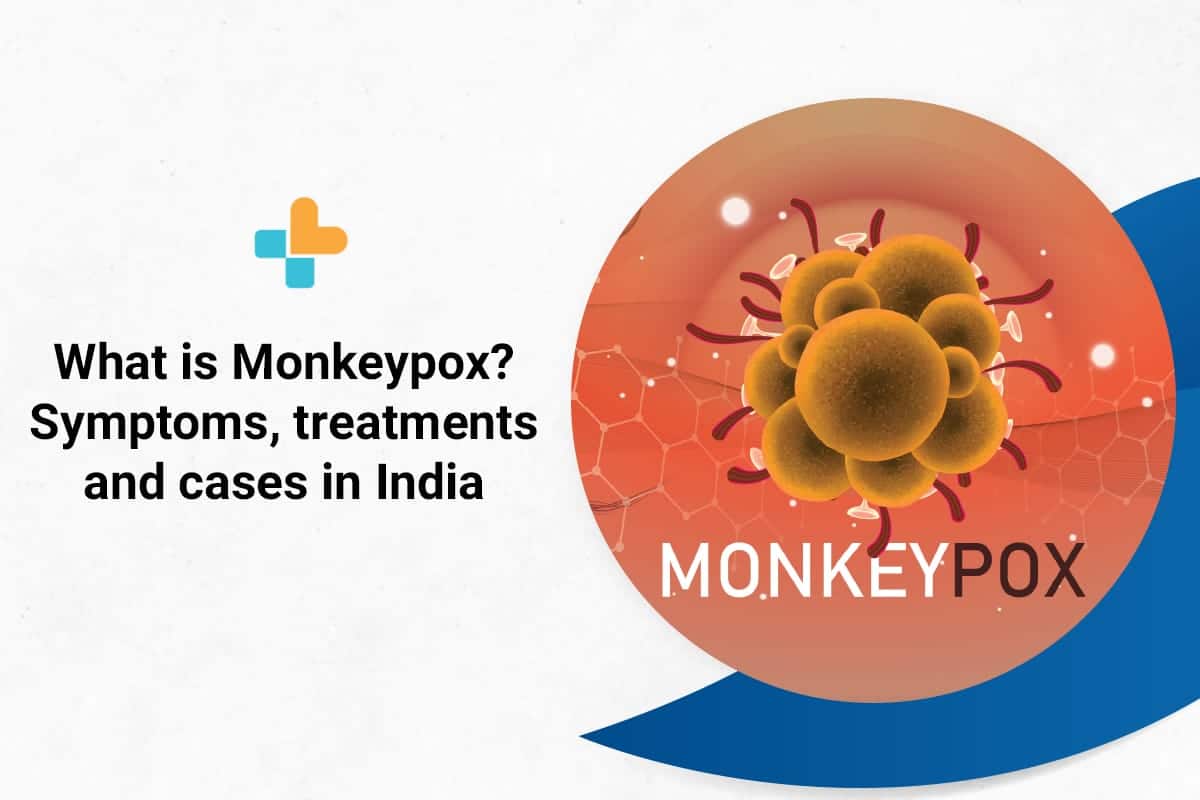The recent Monkeypox disease outbreak in Europe has caused widespread concern and distress throughout Europe and the rest of the world. People are fearing yet another pandemic or something much worse. We understand that you have a lot of questions like ‘What is Monkeypox?’ ‘What are its signs and symptoms, and ‘should Indians brace themselves for another lockdown?’ ? All your questions will be answered in this blog.
Let’s start with the basics
What is Monkeypox?
Origin of Monkeypox
Unlike the coronavirus, the Monkeypox virus is not a new strain of the virus. It has been around for a while. It was discovered in monkeys for the first time in 1958. The first human case was discovered around 12 years later in the Democratic Republic of Congo, and the virus has remained mostly in central and west Africa over the previous few decades, mainly near tropical rainforests.
About the Virus
The Monkeypox virus is a part of the orthopoxvirus family, which includes the variola virus (which causes smallpox) and the vaccinia virus (used in the smallpox vaccine). The virus has two genetic strains: The Central African (Congo Basin) strain and the West African strain. The Central African strain is known to spread more quickly and cause more severe symptoms, whilst the West African strain is often milder. Currently, the outbreak in Europe is caused by the milder, West African strain.
How Does Monkeypox Spread?
Monkeypox is transmitted when a person comes in contact with an infected animal or a human. It is also transmitted when a non-infected person comes in contact with contaminated objects used by an infected person. The virus enters the body through broken skin (even if they are not apparent), the respiratory tract, or mucous membranes (eyes, nose, or mouth).
Furthermore, the virus infections can spread from animals to humans through rodents or primates, or ny direct contact with infected people. Avoid direct contact with wild animals, especially those that are sick or dead, to lower the risk of contracting monkeypox from them (including their meat and blood). Any items including animal meat or parts should be fully cooked before eating in endemic countries where animals spread monkeypox. The disease has already been declared a pandemic by the WHO and precautionary measures are a must to avoid this disease from reaching the threat levels of the COVID-19 pandemic. Efficient management by authorities combined with people following social directives is essential to help contain this pandemic.
Furthermore, the virus infections can spread from animals to humans through rodents or primates. Avoid direct contact with wild animals, especially those that are sick or dead, to lower the risk of contracting monkeypox from them (including their meat and blood). Any items including animal meat or parts should be fully cooked before eating in endemic countries where animals spread monkeypox.
It is to be noted that the virus is not airborne, however, if an infected person were to sneeze/cough at you, you are at risk of contracting the virus.
Monkeypox Symptoms
Monkeypox takes 6 to 13 days to incubate (from infection to beginning of symptoms), with some people experiencing symptoms as late as 21 days post-infection.
7 commonly known Monkeypox symptoms in humans include the following during the invasive period (0-5 days):
- Fever
- Headache
- Muscle aches
- Backache
- Swollen lymph nodes
- Chills
- Exhaustion
After 1-3 days of the milder symptoms, some of the severe symptoms start to show. It includes skin eruption and rashes that often begin on the face and then spread to other parts of the body.
Monkeypox is normally a self-limiting condition, with symptoms lasting between 2-4 weeks. Extreme symptoms occur more commonly among children and are related to the extent of virus exposure, patient health status, and the nature of complications.
What Is the Treatment for Monkeypox
Since the virus infection is a self-limiting disease, the treatment is administered only to alleviate symptoms, manage complications and prevent long-term sequelae. Furthermore, to maintain proper nutritional status, patients are given adequate fluids and food supplements to replenish natural immunity, while secondary bacterial infections are treated as they show up.
Frequently Asked Questions about MonkeyPox
- Are there any Monkeypox cases in India?
As of 25th May 2022, there are no reported cases in India.
- How is India preparing for Monkeypox?
If there are cases detected in India, the National Centre for Disease Control (NCDC) has instructed states and union territories to transfer suspected cases to isolation centers and keep them there until all skin lesions have healed and a new layer of skin has grown, or until the treating physician approves their release.
And if in case the number of people infected was to increase, random screening of people arriving from affected counties will be enforced.
- It is caused by which virus?
The virus is an enclosed double-stranded DNA virus belonging to the Poxviridae family’s Orthopoxvirus genus. Smallpox is caused by this virus family, and there is no cure for it; only vaccines are available.
- Is there a vaccine for Monkeypox?
While there is no vaccine, there are antivirals that have been licensed for treatment. Furthermore, according to the CDC, the smallpox vaccine is at least 85 percent effective against this virus.
If you need additional information or would like to speak with a professional, feel free to contact us right away at +91 636-610-0800 or book an appointment on our website..
Our Hospital Locations
General Surgery Hospitals in Chandigarh | General Surgery Hospitals in Bangalore | General Surgery Hospitals in Jaipur | General Surgery Hospitals in NCR | General Surgery Hospitals in Hyderabad
Our Doctors
General Surgery Doctors in Chandigarh | General Surgery Doctors in Bangalore | General Surgery Doctors in Jaipur | General Surgery Doctors in NCR | General Surgery Doctors in Hyderabad
About the Author

Dr. S. Goel
Dr. S. Goel is a renowned Internal Medicine Specialist currently practicing at Ayu Health, Bangalore. He is a Specialist in Internal Medicine, Diabetes HTN, Paediatric Care, and Family Medicine.




